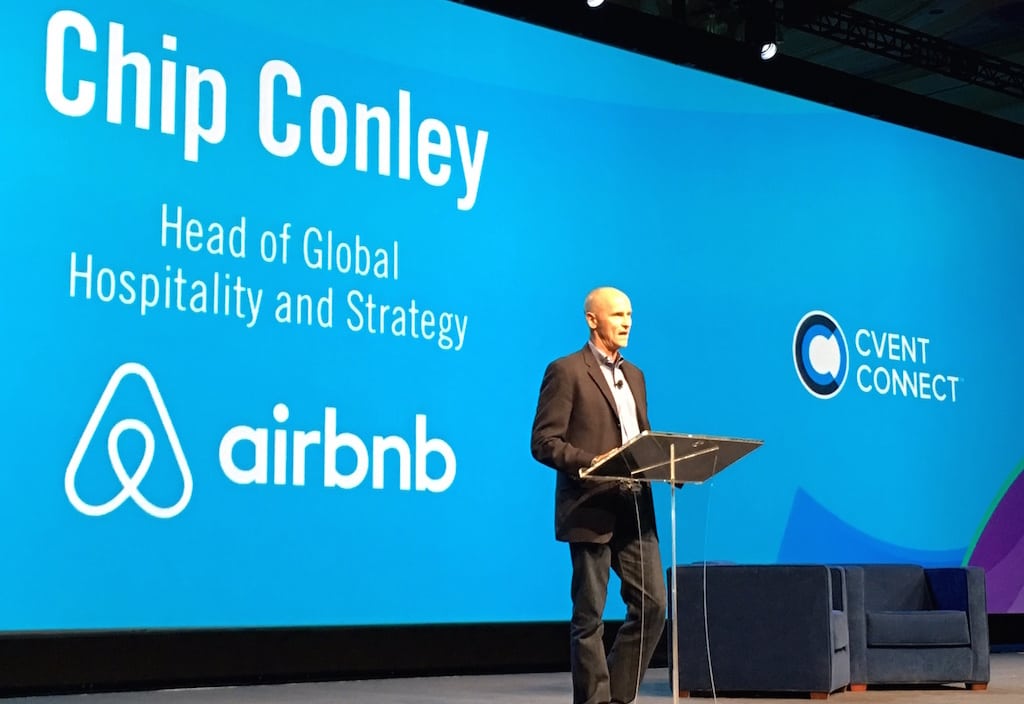Airbnb Explains Its Strategic Move Into the Meetings and Events Industry

Skift Take
Airbnb can't compete directly with hotels for meetings business in terms of product, but it will be able to grab market share in the future by offering a degree of personalization that hotels can't match.
Chip Conley, head of hospitality and strategy at Airbnb, discussed the opportunities and challenges of room-sharing for meeting planners during his speech at a vendor conference in Las Vegas this week.
As we’ve written about previously, there’s a growing demand for Airbnb accommodations from conference attendees, based on the platform's extensive variety of listings and overall value. Conley's primary message stressed that room-sharing is the ultimate way for delegates to personalize their business travel experience.
He first explained that business travelers 10 years ago aspired toward staying in the most upscale accommodations above all else. Today, he said the number one priority has shifted to "discovery." Therefore, Airbnb is positioned as a platform for exploration, for both leisure and business travelers, because there’s such a variety of listings located in so many different types of neighborhoods, providing greater access to more types of local travel experiences.
Conley’s speech, however, wasn’t meant to directly challenge the thousands of hotel professionals in the audience by promoting Airbnb as the next big thing in meetings and events. It was more of an introduction. It was basically an explanation of how Airbnb has grown so popular to date, and how it could impact the meeti
